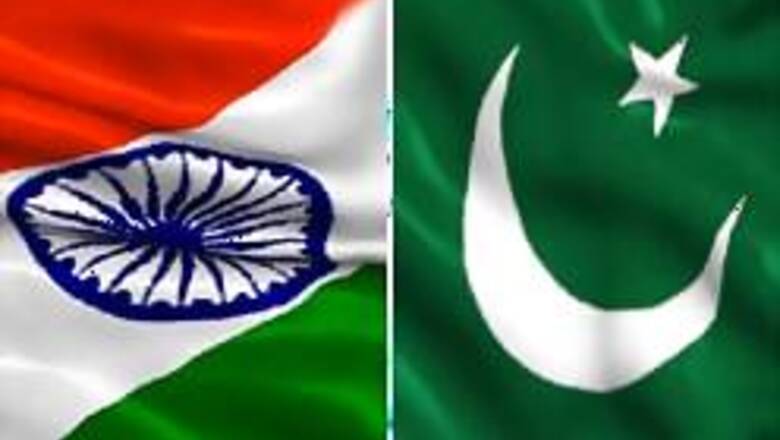
views
New Delhi: If the joint mechanism between India and Pakistan to tackle terrorism does not produce results, then New Delhi will have to think of winding it up, reliable sources said on Monday.
They said the idea behind setting up of the group was that New Delhi would sit face to face with those "hands-on people", who deal with the situation in Islamabad, to try and track elements in Pakistan who foment trouble in India.
There would be a structured dialogue on the issue and detailed exchange of information which cannot be brushed aside lightly unlike in the past.
The sources said the decision to set up the mechanism should be seen in the context of commitments made in the joint statement by Prime Minister Manmohan Singh and President Pervez Musharraf in Havana.
The two leaders had referred to the joint statement made by the leaders of both countries in January 2004 and Pakistan's commitment not to encourage terrorist violence from its soil.
The sources said it was felt it was time for both sides to put their position on paper on the issue of terrorism as Pakistan also claims it was a victim of terrorism. However, they did not agree with the view that there had been a shift in India's stand on this issue.
On apprehensions about the efficacy of the mechanism, the sources said if it failed to deliver results, then the option was there to wind it up.
They said the idea to establish the mechanism was entirely India's and no fingers had been pointed out at New Delhi of inciting terrorism.
"Some of the leaders in Afghanistan said he (Mullah Omar) was seen in a mosque in Quetta. I mean, frankly, this is so outlandish. And people from the American television and Western agencies went to that mosque," Kasuri said.
"The mosque hardly existed. Now, why would Mullah Omar expose himself in that manner? And why should he not be among the people who love him or respect him or who have led him? And that is the Kandahar area. Why should he come to Pakistan, and particularly in Quetta, which is also Baluchi and Pashtun?" he countered.
"So therefore, it is unlikely that he would be there. And then, that is an urban area. Why should he go to urban areas when he can more easily hide himself in wooded areas or in caves?" Kasuri said.
On the recent truce with tribal leaders in northern border regions, especially Waziristan, Kasuri said, "We've... involved tribal leaders and there's been long negotiations which are being conducted through the governor of the frontier province because these tribal agencies on the border between Pakistan and Afghanistan have really never been completely tamed."
"What are we doing? First of all, there's no question of withdrawing the army from those (northern tribal) areas. What we are doing is, yes, redeployment is involved... Sometimes what happens when you have acts of violence, you end up alienating the local populations," the Foreign Minister said.
He also rejected the notion that Pakistan was reluctant to clamp down on the Taliban, pointing to the close cooperation between the Central Intelligence Agency of America and the country's Inter Services Intelligence.




















Comments
0 comment